Liz Whitaker
Liz Whitaker is the Community Health Supervisor for Kittitas County Public Health Department. In this position, she supervises the investigation of communicable diseases, a clinic that provides vaccines, travel consultations, and TB screening, and efforts to prevent the spread of infectious diseases like hepatitis C and HIV through education of high risk individuals, testing and counseling, and a needle exchange program. She moved to Ellensburg thirty-five years ago with her husband and a music degree, to start a piano tuning service and raise a family of three sons. Twenty years ago she went back to school to become a nurse. Before starting in her current position, she worked as an OB nurse and a home visiting nurse to pregnant women and children with special needs. She recently completed a Master’s in Nursing at University of Washington and became a Certified Nurse Midwife.
What does public health mean to you?
Public health means providing prevention and early intervention policies, programs and activities so that people can live healthy lives.
What excites you about public health and the work you do?
I love interacting with members of my community, from the individuals who come to us for services or answers to questions, to the health care providers who are reporting a communicable disease. I love hearing the whole story and developing a deep understanding of personal strengths and challenges. I love providing services that make my community stronger and healthier.
What has been your most rewarding public health achievement of your career?
Working with families of children with special needs has been greatly rewarding. It is such a privilege to walk alongside people who are dealing with huge challenges and offer a listening ear, knowledge of community resources, and willingness to go looking for what is missing. I also very much appreciate the community coalitions and work groups I have been involved with – particularly the Early Learning and Breastfeeding Coalitions, and the Advance Care Planning team at our local hospital. Knowing that my work supports my community has been vital.
What have been your greatest challenges working in public health?
My greatest challenges working in public health have been letting go of the problems I cannot solve, and trying to visualize future developments and possibilities.
If you could wave your “public health magic wand”, what would you wish for?
If I could wave a magic wand, I would wish for plenty of resources to provide better infrastructure for healthy living. No matter what the income level in the population, our environments and institutions would be safe and sustainable. All parents and caregivers would have the time and skills to develop nurturing relationships with children. All jobs would provide a living wage and plenty of paid time off for taking care of self and family. Everyone who is willing to work, and those who are not able to work, would be able to have decent housing, transportation, health care and food. Every pregnant woman and new mother would be eligible for home visits from skilled professionals until mother and baby are stable and have abundant support systems.
How do you like to spend your time when you’re not working?
I love to sing, read, grow flowers and raspberries, and volunteer. I sing in a women’s chorus and serve on the board of several non-profit organizations. And though my three sons are now grown and independent, my husband and I are always looking for a good excuse to go see them.
Beth Lipton
Beth Lipton, DVM MPH CPH, is the Public Health Veterinarian at Public Health—Seattle & King County; her position is located in the Environmental Health Services Division. She joined PHSKC in June 2014 after working as an epidemiologist for Kitsap Public Health District for seven years. Beth graduated from Tufts University School of Veterinary Medicine in 2001, earned her MPH degree from UW in 2007, and was in the inaugural class of CPH recipients in 2008. Beth served on the WSPHA Board of Directors for three terms, from 2010 to 2015. She enjoys her current role as Public Health Veterinarian as it is a great blend of her education and experience, working on zoonotic disease education, prevention and control, One Health efforts, the health impacts of climate change, and emergency preparedness and response.
What does public health mean to you?
Public health means working to ensure the health and well-being of all people in all communities by promoting and creating equitable access to and opportunities for healthy behaviors and environments. Public health connects people and works to make a better, more equitable, healthier world.
What excites you about public health and the work you do?
I love that public health brings together professionals with so many different backgrounds and skill sets, and that people who choose to work in public health are truly passionate about what they do and why they do it. I also value that public health is based in science and has measurable impacts on people and communities. Public health is helping to lead the way on challenging issues such as health inequities, social determinants of health, emerging infections, climate change, and gun violence. The Association of Schools & Programs of Public Health states that, "Those in the public health field are helping to solve the world’s most pressing health problems." I’m honored to work in a profession that gets recognition for such important work.
What has been your most rewarding public health achievement of your career?
I think it hasn’t been any one project or achievement, but that overall there have been times when I feel like I have ‘moved the needle’ and made a difference. Examples include helping people, such as the public, decision makers, and elected officials, to better understand data which inform their decisions; working with pet owners, animal care workers, and veterinarians to decrease the risk of zoonotic diseases; and serving on the WSPHA Board of Directors to help connect and advocate for public health professionals.
What have been your greatest challenges working in public health?
1) Making the transition from patient/client-centered care as a practicing veterinarian to population-based practice, but I had great mentors to help me!, and 2) experiencing and seeing the funding challenges that public health is constantly dealing with and which take away from the great work that people are trying to do.
If you could wave your “public health magic wand”, what would you wish for?
Increased and sustainable funding for public health that adequately reflects the amount we should be spending on prevention, as we won’t become as healthy a nation as we should be until we invest in it; the elimination of health inequities through lasting and effective policy and funding changes; and the opportunity for every child to achieve their maximum potential in life.
How do you like to spend your time when you’re not working?
I am busy outside of work with my husband and three children, ages 6, 10 and 12. I enjoy spending time with our kids and watching them train and compete in their chosen sports. As a family we love to swim, hike, camp, play on the beach, go on bike rides, fish, explore new places, spend time with friends, and be around our pets. When I need some time to myself, I like to run, swim laps, read, and cook.
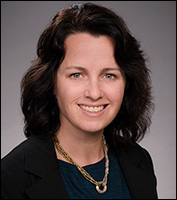
Emily Glenn
Emily Glenn is the Community Health Outreach Coordinator for the National Network of Libraries of Medicine, Pacific Northwest Region, based at the University of Washington. In this position, she conducts outreach about tools and services for research, provides information needed to improve community health and reduce health disparities, promotes awareness and use of National Library of Medicine resources, and develops training curricula for unaffiliated health professionals and the public health workforce. Prior to joining the PNR, Ms. Glenn worked as a librarian at a medical college in Ethiopia and at an infectious disease research institute in Seattle. She received her MS in Library Science from the University of Carolina at Chapel Hill and BA in Sociology from the University of Oregon.
What does public health mean to you?
I think Public Health is the confluence of healthy environments, availability of health choices, and healthy people supported by health-promoting policies. For me, this means addressing health disparities and focusing on preventive health in part by developing strong relationships with partners who provide health information to the public.
What excites you about public health and the work you do?
In this position, I spend a lot of time meeting with people who provide public health service, education or research for their communities in the Pacific Northwest. It is inspiring to hear about successes in projects that have been funded in part by the National Network of Libraries of Medicine, carried out by our network member libraries, hospitals, schools, and community partners. One project in Fairbanks, carried out by a regional hospital, trained selected Faith Community Nurses and members of their health ministry teams to utilize free National Library of Medicine resources to help community members with limited internet or computer literacy find quality online consumer health information. Sharing in these successes and hearing stories of the immediate impact of outreach is incredibly exciting.
What has been your most rewarding public health achievement of your career?
During the past year, I was part of a team based at the University of Washington Health Sciences Library that developed a mobile application to support the information needs of first responder community during disaster events (Response and Recovery App in Washington, rrain.org, PI Tania Bardyn). While conducting training and outreach for the app and resources around WA state, I heard a lot of positive feedback about the resources in the app and value of having consolidated resources for WA state disaster issues. Particularly for smaller EOCs and for new professionals, introductions to and instruction in chemical and radiation resources like WISER, REMM and CHEMM sparked interest and stories of usefulness time and again. Because this project was through an award with the National Library of Medicine’s Disaster Health Information Outreach Center, we got to collaborate directly with people who had a broad national perspective. Locally, HEALWA (Health Evidence Resource for Washington State), the State Department of Health and other area hospitals and libraries, helped us identify the right people to be in our focus group and to receive training. It was a truly cooperative (and fun) project.
What have been your greatest challenges working in public health?
It’s probably everyone’s challenge: the funding. I’ve connected with researchers who are so incredibly passionate about their work, yet whose departments or institutions lack the resources to support their research.
If you could wave your “public health magic wand”, what would you wish for?
First, that published health research information is open and freely available. Second, that proper toilets and handwashing facilities are available to everyone in the world.
How do you like to spend your time when you’re not working?
I enjoy playing outside. I run, play defense in co-rec soccer, snow ski, and hike and am preparing to climb Mt. Rainier next summer. This year I plan to try Tango, too.
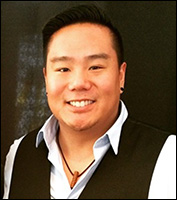
Gunnye Pak
Gunnye Pak graduated from the University of Washington in 2012 with a bachelor of science in physiology. He dedicated his time after graduation as a special education teacher at low-income schools in the state of Hawaii with support and training from Teach for America. He has experience in working with students from elementary, middle, and high school levels in Hawaii, Arizona, and the West Bank. During his time as an educator, he witnessed social injustices throughout the United States and the Middle East through the lens of education and in healthcare. He believes that the two fields are intrinsically tied and have the greatest impacts on society and country, as long as people and government invest them in. He has since pursued his passions in public health and medicine by obtaining his Master of Science degree in Global Medicine from the University of Southern California and is now working as a medical interpreter in the Puget Sound area, communicating for non-English speaking individuals of Korean heritage. He plans to advocate for low-income patients and students throughout the country as a future physician and make lasting systemic changes.
What does public health mean to you?
Public health, to me, refers to the supporting and protecting of the population as a whole through appropriate interventions. Vaccines, educational programs, policy changes, disease control, and family health are but a few of the things that public health encompasses. This is especially important to those in lower socioeconomic areas, children, and the elderly. I believe we have moral obligation to protecting these vulnerable populations and should always be the first to be considered when considering short-term and long-term public health plans.
What excites you about public health and the work you do?
I am excited about public health because of the large lasting implications a policy change, educational program, or regulatory controls can have on a population. While these larger systemic changes can yield great results, I also believe in working on the front lines. My time in the emergency department as a scribe has taught me that the work of those in the trenches is crucial. Implementation and buy-in by those with direct patient contact will make or break an initiative.
If you could wave your “public health magic wand”, what would you wish for?
I would wish for the easy accessibility of family health and preventative services for all people and with that, health education. From my experience in the emergency department and as a public school teacher, I have noticed a common theme of unfamiliarity with one’s health and knowledge of available services. This has resulted in the lack of healthy lifestyles and a general belief that health services are only used when one is acutely sick. This lack of knowledge can have long-term consequences as we can see in the rise of obesity and non-communicable diseases such as heart disease and diabetes and other issues such as early teen pregnancy and the spread of sexually transmitted diseases. Education, awareness, and prevention are key to public health and although much progress has been made, there is still much more room for improvement.
How do you like to spend your time when you’re not working?
I enjoy meeting and getting to know new people and catching up with old friends. Whether it is through sports and the outdoors or over a meal at the new restaurant, I like to hear and learn about another person’s story. I also enjoy power lifting and reading in my spare time.
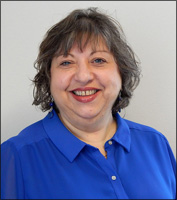
Danielle Kenneweg, MPA
Danielle Kenneweg (Danny) is currently the Manager of the Health Promotion and Communication Section at the Washington State Department of Health. Her section provides health promotion and communication support to the Prevention and Community Health Division through information designers, health educators and web specialists. Prior to accepting this position, Danny spent three years working in Comprehensive Cancer Control Programs in two states and for CDC as a regional public health advisor to seven state and tribal Comprehensive Cancer Control programs. From 1997 to 2005, she managed the Breast and Cervical Cancer Early Detection Program in North Dakota. Danny’s first public health work focused on improving local coordinated school health programs in collaboration with the state education agency. In her early professional career, she was a Family and Consumer Sciences teacher. She holds a BS degree from North Dakota State University in Home Economics Education and a Masters degree from the University of North Dakota in Public Administration with a certificate in Health Administration. Danny is also a Certified Health Education Specialist.
What does public health mean to you?
It means helping all people live a healthier life. It means using strategies and activities that make healthy choices so easy that people don’t even know the difference. It means creating a world where every single person has an opportunity to make a healthier choice. It means being equitable and fair so that we all benefit from each others’ health.
What excites you about public health and the work you do?
My work is behind the scenes helping the public health worker with "boots on the ground" work. Being able to support program level staff and subject matter experts to do a better job, reach the right audience and ultimately see behavior change is really rewarding.
What has been your most rewarding public health achievement of your career?
It’s not mine but rather that of the country – the passage and implementation of the Affordable Care Act. I was at a national conference in DC the day that the Supreme Court ruling was announced. It was absolutely incredible to see the emotion and pure joy in the room. There has been so much focus on the insurance side of the Act and in reality, there is so much more to it. The population health work is just beginning and when we, as a country, begin to see its depth, there will be more appreciation.
I managed the Breast and Cervical cancer screening program in North Dakota for several years. Personally, it was so heart-warming to hear from women who had their first positive experience with a government program. They would tell stories about getting their first mammogram at age 56 because they’ve never had insurance that included that benefit; or have had abnormal Pap tests in the past and had no insurance so did not go for screening; or they got to see the birth of a grandchild because this program helped them pay for treatment that their insurance would not touch. That’s rewarding and an achievement!
What have been your greatest challenges working in public health?
The greatest challenge is seeing state and local governments not funding public health work appropriately. It’s probably because we do work that is not always visible – it’s behind the scenes. This has caused over-reliance on federal funding which leads to funding that ends and programs that end.
If you could wave your “public health magic wand”, what would you wish for?
I would wish for the ongoing tussle between public health and health care to go away. We need to work together, respect each others’ functions and trust one another so that we can move forward. Of course, there’s that "bottom line" issue that always stands in the way.
How do you like to spend your time when you’re not working?
I’m pretty domestic. I like being in the kitchen – cooking good old-fashioned stuff. And I really love baking. I’ve been known to bake birthday goodies for my staff and peers at DOH. I also like scrapbooking – I have many years worth of photos that need a home in a scrapbook. Container gardening with a few vegetables each year keeps me in touch with Mother Earth. And finally, I really love spending time – just "hanging" with my grown children.
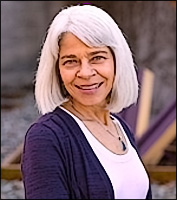
Janet Primomo, RN, PhD
Janet Primomo, RN, PhD joined the UW Tacoma Nursing Faculty in 1992 as one of its three founding faculty members. Her scholarly work focuses on community/public health, environmental health, and chronic illness care. As a member of the Tacoma Pierce County Asthma Prevention Partnership, Dr. Primomo has conducted evaluation research on multi-faceted community-based chronic disease prevention programs, including Clean Air for Kids. She is an active member of the Washington State Asthma Initiative, and has held leadership positions with the Washington State Nursing Association and the American Public Health Association. Dr. Primomo received her PhD (1989) and MN (1982) at the University of Washington Seattle and her BSN (1975) from Russell Sage College in Troy, New York. She received UW Tacoma’s Distinguished Teaching Award in 1997 and the Dr. Trudeau Award from the American Lung Association of Washington for outstanding research and volunteer leadership.
What does public health mean to you?
Public health means promoting and protecting the health of our communities and populations. Public health fosters the conditions that make it possible for all individuals, families, communities and populations to function at the highest level possible. In order to have healthy communities and populations, we must have a healthy environment, equitable access to quality health care, economic opportunities, and a strong education system. Assessment, assurance, and policy development based on assessment data and science are critical elements of public health. While most public health interventions are population-level activities, some population health services are necessary at the individual, family and group level to promote public health.
What excites you about public health and the work you do?
As a university faculty member, I have the opportunity to work with interdisciplinary community partners as I mentor students in the practice of community and public health. UW Tacoma is an urban serving university that rewards faculty for providing students with real-life learning experiences. Currently, I am a core partner with Pierce County’s Community Health Improvement Plan and able to engage in public health practice as well as provide experiences for students to learn about collaboration and population health. Similarly, I have been able to partner with the Perinatal Collaborative of Pierce County and link students with the important work being done locally to improve the health of vulnerable women and children.
I have also been thrilled to teach environmental health and health policy to undergraduate and graduate students over my 30 years as an educator. When students begin to see a "bigger picture" and understand the role of social determinants of health or how the physical environment can influence health, they get excited about advocating for change. Helping students learn to be confident in their ability to be policy advocates is very gratifying.
What has been your most rewarding public health achievement of your career?
Working in partnership with local and statewide agencies to promote health has been a highlight of my career. In Pierce County, our Puget Sound Asthma Coalition has grown from a just a few individuals and organizations to a more organized partnership that includes major healthcare systems and has several research projects ongoing. I have been able to conduct and disseminate community-based research about the benefits of home visits by asthma outreach workers. Collectively, members of our asthma partnership are also advocates for healthy housing, asthma outreach worker reimbursement, the use of evidence-based guidelines in clinical care, better coordination with school nurses and childcare, and improved indoor and outdoor air quality. Because of that work, I was appointed to serve on Pierce County’s Clean Air Task Force and help craft a plan to reduce wood smoke in Pierce County. As one of the few health professionals and only registered nurse on that Task Force, I was pleased to serve.
In addition, I have greatly enjoyed my role as an educator in public health workforce development by providing opportunities for students to learn about public health principles and public health careers. It is a great privilege to work with first generation college students and an increasingly diverse population of registered nurses who are completing their BSN or graduate degrees and to help them achieve their personal goals. It has been tremendously rewarding to follow graduates who have a vision of health equity and have gone on to become elected officials, pursue academic positions in nursing or public health, or be change agents in their communities. I am inspired by their work. For example, one of my graduates created a free chronic disease clinic to serve low income people. Others are leading healthcare organizations.
What have been your greatest challenges working in public health?
Changes in nursing education and practice that have resulted in fewer nurses being prepared in community and public health have been challenging. With decreased funding in public health there has been a loss of the public health nursing workforce. Yet evidence-based programs such as the Nurse Family Partnership (NFP) have the potential to improve short term as well as long term outcomes such as the reduction of child abuse and neglect. The NFP can potentially minimize the effects of adverse childhood experiences that can lead to poor health outcomes in adulthood. In order for students to pursue careers in public health, they need exposure to public health nurse role models.
If you could wave your “public health magic wand”, what would you wish for?
Like most public health professionals, I wish for increased funding for public health. I would love to see new models of community/population nursing practice that go beyond what we have today. For example, nurses with advanced education in community/public health might be responsible for the health of communities and populations by serving geopolitical areas and partnering with faith communities, community centers, housing developments, employers, healthcare systems, and schools to promote and protect health. Expanding health policies that address chronic disease prevention and embraces upstream approaches to health promotion are critical to achieving health equity. In order to do that, it is important to expose the future work force to public health principles.
How do you like to spend your time when you’re not working?
My favorite activities are those I can engage in outdoors. I like to bike, hike/walk, garden, cross country ski, and snow shoe. I also enjoy reading (especially historical novels), cooking healthy meals for family and friends, and traveling. I have been known to take my family to public health-related historical sites including Lillian Wald’s Henry Street Settlement in New York City and the Nightingale Museum in London.
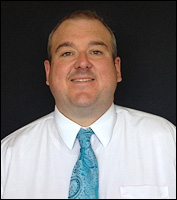
Jefferson Ketchel
For the past five plus years, Jefferson Ketchel has been the Administrator of the Grant County Health District. Beginning mid-July 2015, he will begin his new position as Environmental Health Director of the Snohomish Health District. Prior to Grant County, he spent fifteen years with Public Health – Seattle & King County. Jefferson was WSALPHO President and Board Chair from December 2013 – May 2015. He is also a past Chair of the Washington State Board of Registered Sanitarians and past Board President of Family Services of Grant County. He holds a Masters in Policy Studies from the University Washington – Bothell and is a graduate of CDC’s Environmental-Public Health Leadership Institute and Harvard University’s National Preparedness Leadership Initiative Executive Education Program.
What does public health mean to you?
Public health is about relationships, not only our relationships with partners, but being the connector between others. This role has been crucial as many local health jurisdictions around Washington are playing significant and leadership roles with Community of Health development. I’m very proud how WSALPHO members have responded to the challenge of healthcare reform in our state and are working with their communities to achieve the triple aim.
What excites you about public health and the work you do?
I love taking risks. A former supervisor once told me that if I wasn’t getting into trouble, I wasn’t doing my job. That to me is public health, pushing the envelope of identifying problems causing poor health and advocating for solutions. Sometimes these problems and solutions can make people feel uncomfortable or go against historical practices, but if it’s not delivering the desired outcome why keep doing it? It excites me to work in innovative and nimble environments where we deliver the product or outcome that makes a real difference. At the Grant County Health District I have worked in such an environment. GCHD has effective and edgy leaders at all levels of the agency and Board. I am blessed to have worked with such admirable professionals.
What has been your most rewarding public health achievement of your career?
My most rewarding achievement has been that I have public health as my career. As a pre-optometry student at CWU that was quickly losing interest in four additional years of school post baccalaureate, my friends in the cafeteria suggested I go into waste management as my apartment was always a mess. I began taking every class with the word “environment” in it until I stumbled upon Environmental Health taught by Gordon Kelly. That class, followed by an internship with John Wolpers at Kittitas County, and a temporary position at Public Health – Seattle & King County with Gary Irvine, Larry Kirchner, Tony Gomez and so many others led to this career. Twenty plus years later I count myself lucky that I got it right on the first try. I love public health, it’s never boring, it’s always rewarding, and I get to see the results of our hard work in my own community every day.
What have been your greatest challenges working in public health?
I have just wrapped up my tenure as President and Board Chair of WSALPHO I would say it has been one of my greatest challenges and one of my greatest joys. Being part of WSALPHO leadership through the bylaw rewrite and implementation, health care reform and the Innovation Plan, and ongoing funding and policy conundrums has kept me busy in this “second job.” However, I have found great satisfaction working with amazing colleagues at the state and local levels. Our Board of Directors is a dedicated and participatory group who provides great leadership to our public health system. We are also exceptionally fortunate to have Brad Banks as our Managing Director. His ability to adroitly maneuver us through the politically charged environments that public health seems to find itself, is crucial to our ongoing success.
If you could wave your “public health magic wand”, what would you wish for?
While eliminating poverty and disease would be wonderful, I’ll wave my wand for something more pragmatic. Local public health officials in Washington spend much of their time away from promoting health and preventing disease. Rather they are near full time fund raisers searching for money to operate their agencies and maintain the public’s health. They go from grant cycle to grant cycle, have uncertainty with each Legislative session, and are subject to the availability of local funds. I am grateful for the work of the Foundational Public Health Services Technical and Policy workgroups. They have illustrated the gaps and needs to fully fund the most necessary functions of our state wide system. With my magic wand I wish for sustainable dollars to fund that gap, about $100 million per year.
How do you like to spend your time when you’re not working?
Spending time with family is my favorite activity. My amazing wife of 11 years, Emily, and I have three children, Harrison (6), Marjorie (4), and Ruby 11 months). This past year we decided to experiment with our own version of micro-living so we moved into a 623 square foot home in Moses Lake. To move from a house four times as big, and then add a newborn to the dynamic has been challenging, but it has brought us closer as a family and positively rearranged our domestic priorities. We have new appreciation of stuff; how much do we really need and what can we live without. However, two things I cannot live without is my love of anything Star Wars and fantasy baseball. As we prepare for our move to the Everett area, we are excited for what adventures await us.
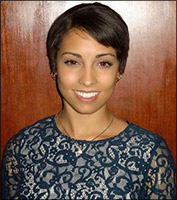
Hallie Pritchett, MPH, BS
Hallie Pritchett, MPH-c, will complete her Masters of Public Health in Global Health Leadership from the University of North Carolina Chapel Hill in August 2015. She is Co-President of the UNC Public Health Leadership Student Association and Co-Chair of the APHA Student Assembly Action Committee. She also serves as Secretary and Membership Chair for the APHA International Health Student Committee, and is an active member of the International Health Section Policy Committee. She has experience with project management and outcomes, clinical, and epidemiological research through her positions with the University of Washington’s Surgical Outcomes Research Center, the Mountain States Tumor Institute and Fred Hutchinson Cancer Research Center. Her public health passions include comparative health systems, health systems strengthening, and alleviating social disparities and injustices in public health.
What does public health mean to you?
I see Public Health as a both a tool and a resource to create better and more equitable health across the globe. I am passionate about using global public health as a mechanism for alleviating social injustices that lead to health disparities. Public health is an essential component of everyone’s life. We must work together to develop and implement culturally competent and sustainable systems around the world so that everyone has the opportunity to reach their fullest health potential.
What excites you about public health and the work you do?
Public health is exciting because it is so ubiquitous and embedded in our society. Strengthening systems and policies have the ability to enrich the lives of large populations. A lot of the work I do with APHA involves the advocacy of public health policies. I enjoy encouraging others to take interest and affect change in the world around them.
What has been your most rewarding public health achievement of your career?
I have had the opportunity to mentor and guide numerous individuals developing their public health careers. Being able to positively influence their path has been incredibly motivating and encouraging.
What have been your greatest challenges working in public health?
The realization that an impossibly large number of Americans are unaware of the health disparities they experience daily is a very difficult challenge to witness. This is something I have been studying since my undergraduate program and I intend to devote my professional career to this topic. I think the lack of understanding has created many barriers in creating healthy environments and developing culturally competent policies.
If you could wave your “public health magic wand”, what would you wish for?
I would wish for a comprehensive, single health system in the United States. By “comprehensive”, I am including social services such as maternity leave, day care services, rehabilitation services. It is still surprising to me how there are individuals who can look at the health rates in other countries, factor in their policies and still think that the U.S. is the “healthiest country”—when in fact we the U.S. ranks among the poorest health outcomes in comparison to other developed and many developing countries rank somewhere in the mid-thirties in most health statistics. I feel that utilizing some of the policies that can be found in other countries and having them function through a single cohesive system would significantly improve our health outcomes and achieve better health equity.
How do you like to spend your time when you’re not working?
When I’m not working my day job, doing homework, or working on APHA to-dos, I enjoy exercising (mostly yoga and dance), baking, and nesting. My husband and I are expecting our first child in October 2015.